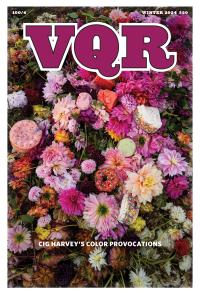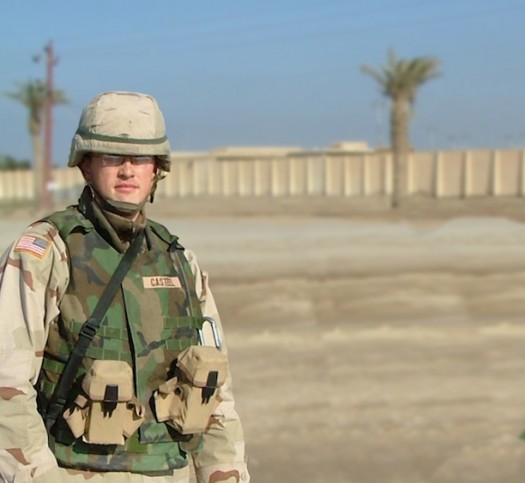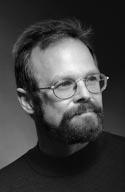
Joshua Casteel (1979-2012)
Editor’s note: VQR was deeply saddened to learn of the passing of Joshua Casteel, a contributor to our pages. We asked one of his friends, Christopher Merrill at the University of Iowa, to offer a few words in memory of him.
What shall we do? This timeless question was what animated the short life of Joshua Casteel. He was by turns a gifted linguist, military interrogator, conscientious objector, playwright, essayist, and scholar—a living testament, on the page and in the flesh, to the demands and orienting power of the moral imagination. He was determined to understand the meaning of his walk in the sun, and in his rigorous questioning of his experience, of his past, present, and possible futures, he displayed a rare courage, which inspired everyone who knew him. His death leaves a gaping hole in the lives of his family and friends—and in our literature.
Our friendship was rooted in the conjunction of war and faith. After a tour of duty in Iraq, which he documented in Letters from Abu Ghraib, he enrolled in the nonfiction writing program at the University of Iowa, where he came to talk to me one day about my writings on the Balkan wars and the Holy Mountain of Athos. When our conversation turned to his interrogation of Iraqi prisoners of war in the aftermath of the torture scandal at Abu Ghraib, and then to his readings of the Church Fathers, I understood that I would always regard him as a colleague, not a student. I am quite certain that I learned more from Joshua than he did from me. For he was eager to share his intellectual and aesthetic discoveries; to draw connections between writers separated by continents, confessions, and centuries; to place his work with Iraq Veterans Against the War in a continuum with his writings for the stage. His sense of possibility, not to mention his humor—these spurred me to think in new ways about my own time here below.
His thesis was a memoir in the form of a spiritual confession, which traced his journey from an evangelical childhood in Iowa to West Point and worlds beyond (an excerpt appeared in VQR); there were staged readings, in Iowa City, Princeton, and the National Theatre in Dublin, of his play, Returns, which was based on his experiences at Abu Ghraib; and he was writing a play about Jackson Pollack’s seminal action painting, Mural, when his father was diagnosed with terminal cancer.He moved back home to help his mother run the family’s air filtration business, writing, preparing on the one hand for the priesthood and on the other for graduate studies at the University of Chicago. What a bitter irony it is that eighteen months after his father’s death Joshua was diagnosed with lung cancer, which he believed was linked to the toxic smoke he breathed from the burning pits at Abu Ghraib—the site of his spiritual transformation.
“My issue,” he writes, recalling an interrogation with a Jihadist, “is not ‘the war in Iraq,’ it’s a Christian complicity in sin. It’s MY complicity in systems of sin and violence.”
Isn’t it possible to say, “there is a perfect path, come join us. Do as we do. It was made manifest in and shown to us by Christ, and continued by the Apostles and the Church today, come join our community.” THAT is what I wanted to say to the Jihadist. To everyone here. To the entire world. There is another way. Violence and coercion are not the true nature of the reality where faith, hope and love reign. Do we actually believe that?
In the end he could not reconcile his faith with the demands of military service, and he so spent his remaining years interrogating his actions, reckoning with the crimes committed and the costs incurred in the war on terror. “Every day I talk with the enemy,” he wrote.
But, I do not see an embodiment of “he who opposes goodness.” If we oppose the war on terrorism with the fervor of a Christian Jihad against Islam, our battle is already lost, for we have become what we opposed and we are now the fundamentalists. Our battle is not one of flesh and blood, but against the spiritual powers and principalities which rule this present darkness. We cannot allow ourselves to be caught up in “war mode” against a fleshly enemy, or the true enemy is already within us, and we have failed to believe in the power of a redemption which (we say) we believe has saved us, as James has told us, “faith without works is dead.”
Joshua Casteel’s faith and works are the living embodiment of what he believed.


